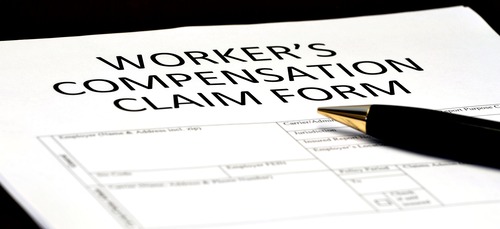At Connell Law Firm, we are a family-run practice with deep roots in South Carolina, committed to providing personalized legal support to our clients. Since our founding in 1993, we have focused on representing individuals and families affected by personal injuries, workplace accidents, and other legal challenges. We handle a range of legal matters, including workers’ compensation, personal injury, criminal defense, and business litigation, serving clients throughout Columbia, Lugoff, and across the state.
A denied workers’ comp claim can put your health and finances at risk. If you were hurt on the job and your claim was rejected, you are not alone. Many injured workers in South Carolina face delays, disputes, or denials from the employer’s insurance company.
In this blog, we explain the common reasons a workers’ compensation claim may be denied, the steps to take after a denial, how the appeal process works in South Carolina, and how working with an experienced Columbia workers’ compensation attorney can help you fight for the benefits you deserve.
Common Reasons Your Workers’ Compensation Claim Was Denied
Understanding why your workers’ compensation claim was denied can help you take the right steps to appeal. Below are the most common reasons a denied workers’ comp claim happens in South Carolina.
You Did Not Report the Injury on Time
South Carolina law requires injured workers to report a workplace injury within 90 days. If you wait too long to tell your employer, your workers’ compensation benefits may be denied. This rule is part of South Carolina Code § 42-15-20. The clock starts the day the injury occurred or when you discovered a work-related illness.
Your Employer Disputes the Claim
Sometimes the employer’s insurance company will say the injury or illness did not happen on the job. If your employer says the injury occurred outside of work or questions whether it is a job-related injury, your workers’ comp claim could be denied. Keep clear records of when and how the injury happened.
There Are Errors in Your Claim
A clerical error, missing documents, or an incomplete comp claim form can lead to automatic claim denial. Forms must be filled out correctly and completely. Any mistakes may give the insurance company a reason to reject your case.
The Injury Was Not Considered Work Related
If you were injured while off the clock or during a break, your workers’ compensation insurance provider might deny your claim. To qualify, the injury occurred during your regular work duties or as part of your job. This includes injuries during required work travel or company events.
The Insurance Company Cites a Preexisting Condition
An insurance company may argue that your pain or condition existed before the work-related accident. A preexisting medical condition does not automatically block your claim. However, without medical proof that your job made the condition worse, the workers’ compensation claim may be denied.
You Did Not Seek Medical Treatment Promptly
Delaying medical treatment after a work-related injury can raise questions. The insurance company may say the injury is not serious or not connected to your job. You must get care and follow instructions from approved doctors listed by the employer’s insurance provider.
You Failed an Alcohol or Drug Test
If you fail a drug or alcohol test after the incident, your claim is denied automatically under South Carolina workers’ compensation laws. This is a common reason insurers use to reject workers’ comp claims, especially in jobs that involve machinery or driving.
You Are Classified as an Independent Contractor
Independent contractors are often not covered under most workers’ compensation programs. If your employer has classified you this way, your workers’ compensation claim may be denied. However, some misclassified employees may still be eligible for benefits with the help of a workers’ compensation lawyer.
Immediate Steps to Take After a Workers’ Compensation Claim Denial
A denied workers’ comp claim does not mean you are out of options. Taking the right steps early can help you recover the workers’ compensation benefits you may still be entitled to.
Read the Denial Letter Carefully
Start by reading the denial letter from the employer’s insurance company. It will list the reason your workers’ compensation claim was denied. Knowing why the claim is denied helps you decide what evidence you need to gather. The letter may mention missing documents, late reporting, or disputes about whether the injury occurred at work.
Organize All Your Documentation
Gather everything related to your workplace injury. This includes medical records, accident reports, and communication with your employer. Keep copies of prescriptions, treatment plans, and bills for medical care. Also include notes from any witnesses who saw the injury happen. These documents will help you prove your claim if you file an appeal.
Contact the Insurance Company
You can speak with the insurance company to ask for more detail about the claim denial. Sometimes the issue is a missing record or clerical error. If the problem is minor, the comp claim could be fixed without going through the full appeal process. Write down the name of the person you talk to and what they say.
Do Not Miss Deadlines
In South Carolina, you have two years from the date of the injury or illness to file a formal claim with the South Carolina Workers’ Compensation Commission. If you miss this deadline, you lose your right to appeal. Act quickly once your workers’ compensation claim is denied.
Get a Free Consultation with a Workers’ Compensation Lawyer
If you do not understand the denial or if the insurance company refuses to pay, speak with a workers’ compensation attorney. Many offer a free consultation. A workers’ comp lawyer can review your case, explain your rights, and help file an appeal. Having an experienced attorney is important if your employer disputes the claim or questions your medical treatment.
Appealing a Denied Workers’ Comp Claim in South Carolina
If your workers’ compensation claim was denied, you have the right to appeal under South Carolina law. The appeal process gives injured workers a chance to fight for the benefits they need.
Start with the Right Form
To begin the appeal, you must file a Form 50 with the South Carolina Workers’ Compensation Commission. This form starts the process of having your case heard. If the claim involves death benefits, use Form 52 instead. You can request a hearing directly on the form. File it as soon as possible to avoid delay.
Prepare for the Hearing
After filing the form, the Workers’ Compensation Commission will schedule a hearing with a Single Commissioner. You will present your evidence showing the injury occurred at work and that it qualifies for workers’ compensation benefits. Bring all records, medical bills, witness statements, and any communication with the employer’s insurance company. Your workers’ compensation lawyer can help prepare the strongest possible case.
What Happens if You Lose at the Hearing
If the Single Commissioner denies your claim, you can appeal to a Panel of Commissioners by filing a Form 30. This panel will review the first decision based on the written record. You will not present new evidence. If your claim is denied again, you can continue the appeal to the South Carolina Court of Appeals.
Deadlines Are Strict
You must file your appeal within 14 days after the hearing decision. Waiting too long can end your right to continue. Deadlines apply at every step, so file all documents on time. If your claim is denied, act quickly to protect your rights.
Why Legal Help Matters
The appeals process involves legal rules and strict procedures. A workers’ compensation attorney can help make sure you follow the right steps and gather the right evidence. Insurers often have lawyers working to protect their interests. Injured workers should have the same support.
Contact an Experienced Columbia Workers’ Compensation Lawyer Today!
If your workers’ comp claim was denied, you still have options. Our team at Connell Law Firm is here to help you understand why the denial happened and what steps you can take to appeal. We know how insurance companies operate, and we are prepared to challenge unfair decisions.
Contact us at [phone] for a free claim review today!




